Privacy policy and cookie management
1. Object
2. Consent
3. What data do we collect?
- its domain (automatically detected by the controller’s server), including the dynamic IP address;
- his/her e-mail address if the user has previously revealed it, for example by sending messages or questions to the website, communicating with the controller by e-mail, participating in discussion forums, accessing the restricted part of the website by means of identification, etc;
- all information concerning the pages that the user has consulted on the website;
- any information that the user has given voluntarily, for example in the context of information surveys and/or registrations on the website, or by accessing the restricted part of the website with identification.
- Name
- Phone number
- Address
4. Collection methods
- Web form available at the time of user registration
5. Purposes of the processing
- to ensure the management and control of the execution of the services offered;
- sending and follow-up of orders and invoices;
- sending promotional information on the products and services of the controller;
- sending free samples or offering services on preferential terms; answering questions from the user;
- to carry out statistics;
- to improve the quality of the website and of the products and/or services offered by the controller;
- to send information about new products and/or services of the controller; for direct marketing purposes;
- to enable better identification of the user’s interests.
- Sending goods matching the search criteria
6. Duration of data retention
7. Data access and copying
8. Right of rectification
9. Right to object to processing
- the processing is necessary for the performance of a task carried out in the public interest or in the exercise of official authority vested in the controller;
- the processing is necessary for the purposes of the legitimate interests pursued by the controller or by a third party, unless the interests or fundamental rights and freedoms of the data subject which require the protection of personal data prevail (in particular where the data subject is a child).
10. Right to restrict processing
- when the user disputes the accuracy of a data and only for the time necessary for the controller to check it;
- when the processing is unlawful and the user prefers the restriction of processing to erasure;
- when, although no longer necessary for the purposes of the processing operation, the user needs it for the establishment, exercise or defence of legal claims;
- for the time necessary to examine the merits of a request for objection made by the user, in other words for the time necessary for the controller to check the balance of interests between the legitimate interests of the controller and those of the user.
11. Right to erasure (right to be forgotten)
- the data are no longer necessary for the purposes of the processing;
- the user has withdrawn his consent to the processing of his data and there is no other legal basis for the processing;
- the user objects to the processing and there is no compelling legitimate reason for the processing and/or the user exercises his or her specific right to object in relation to direct marketing (including profiling);
- the personal data have been processed unlawfully;
- the personal data must be erased in order to comply with a legal obligation (of Union or Member State law) to which the controller is subject;
- the personal data have been collected in the context of the provision of information society services to children.
- where the processing is necessary for the exercise of the right to freedom of expression and information;
- where processing is necessary for compliance with a legal obligation to process laid down by Union law or by the law of the Member State to which the controller is subject, or for the performance of a task carried out in the public interest or in the exercise of official authority vested in the controller;
- where the processing is necessary for reasons of public interest in the field of public health;
- where processing is necessary for archival purposes in the public interest, for scientific or historical research purposes or for statistical purposes and provided that the right to erasure is likely to render impossible or seriously compromise the achievement of the purposes of the processing in question;
- where the processing is necessary for the establishment, exercise or defence of legal claims.
12. Recipients of data and disclosure to third parties
13. Use and management of cookies
General principles. This section provides information about the use of cookies on the website.
This cookie policy applies to the website. These are managed by the controller.
The website uses cookies in order to make navigation more useful and reliable. Some of these cookies are essential for the website to function, others are used to improve the user experience.
Most web browsers are configured to accept cookies automatically. If the user wishes to customise their management, they must modify the settings of their browser. Further information on this subject can be found in the “Cookie management” section of this provision.
By visiting and using the website, the user expressly agrees to the cookie management described below.
Definition of cookies.
A “cookie” is a data or text file that a website’s server temporarily or permanently stores on the user’s equipment (computer hard disk, tablet, smartphone, or any other similar device) through the user’s browser. Cookies may also be installed by third parties with whom the controller collaborates.
Cookies store a certain amount of information, such as the language preferences of visitors or the contents of their shopping cart. Other cookies collect statistics about the users of a website or ensure that graphics appear correctly and that applications work well on the website. Still others allow the content and/or advertising on a website to be tailored to the user.
Use of cookies on the website. The website uses different types of cookies:
- Essential or technical cookies: these are cookies that are essential for the operation of the website, enabling good communication and intended to facilitate navigation;
- Statistical or analytical cookies: these cookies make it possible to recognise and count the number of visitors and to see their browsing behaviour when they visit the website. This makes it possible to improve the user’s browsing experience and makes it easier for them to find what they are looking for;
- Functional cookies: these cookies enable specific features on the website to improve usability and user experience, including remembering the user’s preference choices (e.g. language);
- Performance cookies: these cookies collect information about how visitors use the website. They allow us to evaluate and improve the content and performance of the website (e.g. by counting the number of visitors, identifying the most popular pages or clicks), and to better match commercial offers to the user’s personal preferences;
- Advertising or commercial cookies: these are files designed to collect data relating to the profile of visitors and which may be installed or read by third parties with whom the data controller collaborates in order to measure the effectiveness of an advertisement or a web page and to better adapt it to the user’s interests;
- Tracking cookies: the website uses tracking cookies via Google Analytics, with the aim of helping the controller to measure the ways in which users interact with the content of the website, and which generates visit statistics in a strictly anonymous manner. These statistics make it possible to continually improve the website and to offer the user relevant content. The controller uses Google Analytics to gain insight into the traffic on the website, the origin of this traffic and the pages visited. This means that Google acts as a subcontractor. The information collected by Google Analytics is generated as anonymously as possible. For example, it is not possible to identify the persons who visit the website. For further information, the user is invited to consult the Google data protection policy, available at the following address: http://www.google.nl/intl/en_uk/policies/privacy/
The controller may also use cookies and beacons to collect information about users’ surfing habits on the various websites and applications belonging to its advertising network.
A beacon is an invisible image file that follows the user’s navigation on one or more websites and/or applications. In addition, other commercial cookies may be installed by advertisers when their ad is displayed.
Commercial cookies do not contain any personal data. The information collected through commercial cookies and beacons is used to measure the effectiveness of advertising and to better personalise advertising on the website and on other websites belonging to the advertising network or for which the controller provides advertising services.
The retention period for cookies varies according to their type: essential cookies are generally kept until the browser is closed, while functional cookies remain valid for 1 year and performance cookies for 4 years.
The controller allows public search engines to visit the website via spiders with the sole purpose of making access and content of the website available via their search engines, without the controller granting the right to archive the website. The controller reserves the right to withdraw the authorisation as formulated in this article at any time.
In order to make offers that may be of interest to the user, the controller may enter into agreements with internet advertising agencies. They have received permission from the controller to place advertisements on the website. When the user visits the website, the advertising companies may also collect information.
Cookie management. Most browsers are set to automatically accept cookies, but all allow you to customise the settings according to your preferences.
If the user does not want the website to place cookies on their computer/mobile device, they can easily manage or delete them by changing their browser settings. The user can also set their browser to notify them when they receive a cookie and decide whether or not to accept it.
If the user wishes to block and/or manage certain cookies, they can do so by following the link linked to their browser:
Internet Explorer: As this browser is no longer monitored and updated by Microsoft, we strongly recommend that you stop using it
Chrome: https://support.google.com/accounts/answer/61416?hl=fr
Firefox: https://support.mozilla.org/fr/kb/protection-renforcee-contre-pistage-firefox-ordinateur
Safari: https://support.apple.com/fr-be/guide/safari/sfri11471/mac
If the user does not wish to accept cookies from Google Analytics, they can indicate this via the cookie message that appears on their first visit to the website or by customising their browser settings to refuse cookies. To stop being tracked by Google Analytics on any website, the user is invited to visit the following website: http://tools.google.com/dlpage/gaoptout
If the user deactivates certain cookies, it is possible that certain parts of the website may not be accessible and/or usable, or may only be partially accessible.
14. Security
The controller shall implement appropriate technical and organisational measures to ensure a level of security of the processing and of the data collected appropriate to the risks presented by the processing and the nature of the data to be protected. It shall take into account the state of the art, the costs of implementation and the nature, scope, context and purposes of the processing as well as the risks to the rights and freedoms of users.
The controller always uses encryption technologies that are recognised as industry standards within the IT sector when transferring or receiving data on the website.
The data controller has put in place appropriate security measures to protect and prevent the loss, misuse or alteration of information received on the website.
15. Communications by post, electronic or telephone
Communication by post. If the user provides the controller with his/her postal address via the website, his/her data will be stored in the controller’s address file in order to respond to the user’s request and to keep the user informed of products and services offered by the controller. Unless the user objects, the controller may also pass on the user’s data to third parties (such as groups of companies and business partners) for direct marketing purposes. If the user does not want his data to be used for direct marketing purposes, he can indicate this when registering on the website.
The user may at any time consult, correct or delete his/her data from the file of the data controller. To do so, he/she should contact the data controller at the address mentioned in the “contact data” section of this Charter, remembering to specify his/her exact name and address (spelled correctly). The data controller undertakes to delete his data from the list that he shares with other companies or organisations.
Communication by phone. If the user provides the controller with his/her telephone number via the website, he/she may receive a telephone call:
- from the controller in order to provide information about its products, services or upcoming events;
- groups of companies and business partners with which the controller has a contractual relationship.
If the user does not wish/no longer wishes to receive such telephone calls, he/she may contact the data controller at the address referred to in the “contact data” section of this Charter, remembering to state his/her exact name and address (spelled correctly). The data controller undertakes to delete his data from the list that he shares with other companies or organisations.
If the user provides the controller with his/her mobile phone number via the website, he/she will only receive messages (SMS/MMS) from the controller that are necessary to answer his/her questions or to inform him/her about his/her online orders.
Communication by e-mail. If the user provides the controller with his e-mail address via the website, he may receive:
- e-mails from the controller in order to communicate information about its products, services or upcoming events (for direct marketing purposes), provided that the user has expressly consented to this or is already a customer of the controller and has communicated his e-mail address to the controller;
e-mails from groups of companies and companies/organisations to which the controller is contractually bound, for direct marketing purposes, provided that the user has explicitly consented to this. - If the user does not wish/no longer wishes to receive such e-mails, he/she can contact the controller at the address referred to in the “contact details” section of this Charter, remembering to state his/her exact name and address (spelled correctly).
The data controller undertakes to remove his contact details from the list that he shares with other companies or organisations.
16. Miscellaneous provisions
The data controller reserves the right to modify the provisions of this Charter at any time. The modifications will be published with a warning as to their entry into force.
The current version of the Charter is dated 20/05/2022.


